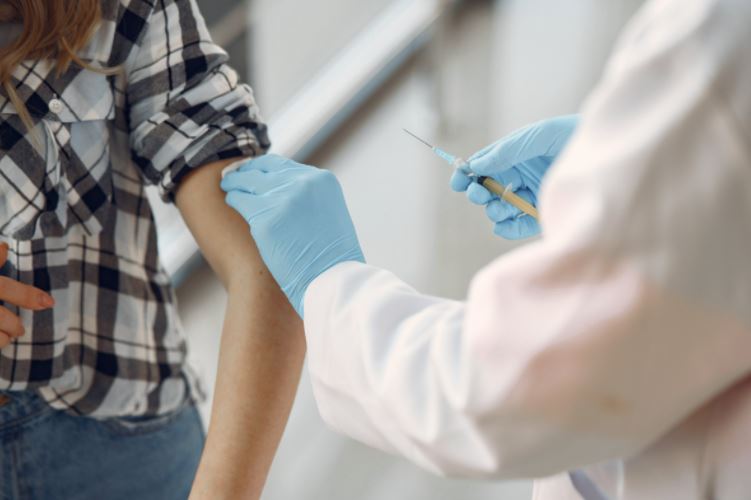FOR IMMEDIATE RELEASE
December 11, 2020
Contact: Lynn Sutfin, 517-241-2112
LANSING, Mich. Michigan Department of Health and Human Services (MDHHS) officials today provided additional information about COVID-19 vaccination plans for Michigan, including priority groups for vaccination administration, the vaccine development and safety process and where Michiganders can find more details.
Yesterday, a U.S. Food and Drug Administration advisory panel recommended approval for one of the vaccines that could be ready for distribution as early as next week. Gov. Gretchen Whitmer also signed Executive Order 2020-193, creating the bipartisan Protect Michigan Commission to help educate Michiganders about an approved vaccine. Michigan health officials have set a goal of vaccinating 70% of Michiganders 18 years of age or older, about 5.4 million adults, by the end of 2021.
“The COVID-19 vaccine will help all our communities eliminate the virus,” said Dr. Joneigh Khaldun, MDHHS chief medical executive and chief deputy for health. “Because initial allocations of vaccine will be limited, we must prioritize how the vaccine will be distributed across the state and will use the guidance and principles outlined by the CDC and national experts. We want every adult to be planning now for how they will get their vaccine once it becomes available to them.”
MDHHS is following the Centers for Disease Control and Prevention recommendations for prioritization of distribution and administration of COVID-19 vaccines. CDC recommendations are based on input from the Advisory Committee on Immunization Practices (ACIP). ACIP is a federal advisory committee made up of medical and public health experts who develop recommendations on the use of vaccines in the United States. MDHHS has also obtained input from a stakeholder group of Michigan public health and health care leaders and reviewed correspondence from the public.
Distribution of the vaccine will be in a phased approach, with an emphasis on both ensuring the continuing functioning of the health care system and essential services in the community and protecting people at increased risk for severe COVID-19 illness. These prioritizations may change as more information on vaccine effectiveness and additional vaccination products become available.
Phases are as follows:
- Phase 1A includes paid and unpaid persons serving in health care settings who have direct or indirect exposure to patients or infectious materials and are unable to work from home, as well as residents of long-term care facilities.
- Phase 1B includes some workers in essential and critical industries, including workers with unique skill sets such as non-hospital or non-public health laboratories and mortuary services.
- Phase 1C includes people at high risk for severe COVID-19 illness due to underlying medical conditions, and people 65 years and older.
- Phase 2 is a mass vaccination campaign for all adults.
MDHHS has provided additional prioritization guidance within these categories. It is important to note that vaccination in one phase may not be complete before vaccination in another phase begins. Vaccination in these phases will likely overlap. The timing of the start of vaccination in a phase is dependent on guidance from CDC and ACIP, the supply of vaccine from the manufacturer, how vaccine is allocated from the federal level to Michigan and the capacity to administer the vaccine to populations.
Vaccine distribution will roll out over a series of weeks, and current estimates are that by late Spring 2021 enough vaccine will be available for everyone who is recommended to receive it. A variety of partners will be engaged in the distribution and administration process, including hospitals, pharmacies, local health departments, EMS providers and outpatient clinics. The Michigan National Guard is also supporting vaccination efforts in some settings.
There will be no out-of-pocket costs to individuals for the vaccine, however, healthcare providers may bill insurance for administrative costs. The COVID-19 vaccine will require two doses, separated by three or four weeks depending on the manufacturer. Michiganders should receive both doses in order to have full protection from the virus. Individuals who receive the vaccine may experience mild side effects such as low-grade fever, sore arm and fatigue, which indicate that the vaccine is working. There is a robust state and national process for tracking vaccines and reporting side effects.
MDHHS stresses Michiganders should continue to wear masks, social distance from those not in their household and wash their hands often, even after receiving the vaccine.
Khaldun said it is important to note that while scientists worldwide are working to develop a COVID-19 vaccine faster than any vaccine before, they are still following the proven process. Scientists had already begun research for coronavirus vaccines during previous outbreaks caused by related coronaviruses such as SARS (Severe Acute Respiratory Syndrome) and MERS (Middle East Respiratory Syndrome). That earlier research provided a head start for rapid development of vaccines to protect against infection with COVID-19.
“The process for approval of a COVID-19 vaccine is scientifically sound, and no steps have been skipped,” Khaldun said. “People should know what to expect when they get a vaccine- such as mild side effects like a sore arm or low-grade fever. They should also plan on making sure they get their second dose to make sure they get the full benefit of the vaccine.”
Michigan residents seeking more information about the COVID-19 vaccine can visit Michigan.gov/COVIDvaccine. As additional information and resources become available, it will be posted to this site.
Information around this outbreak is changing rapidly. The latest information is available at Michigan.gov/Coronavirus and CDC.gov/Coronavirus.




